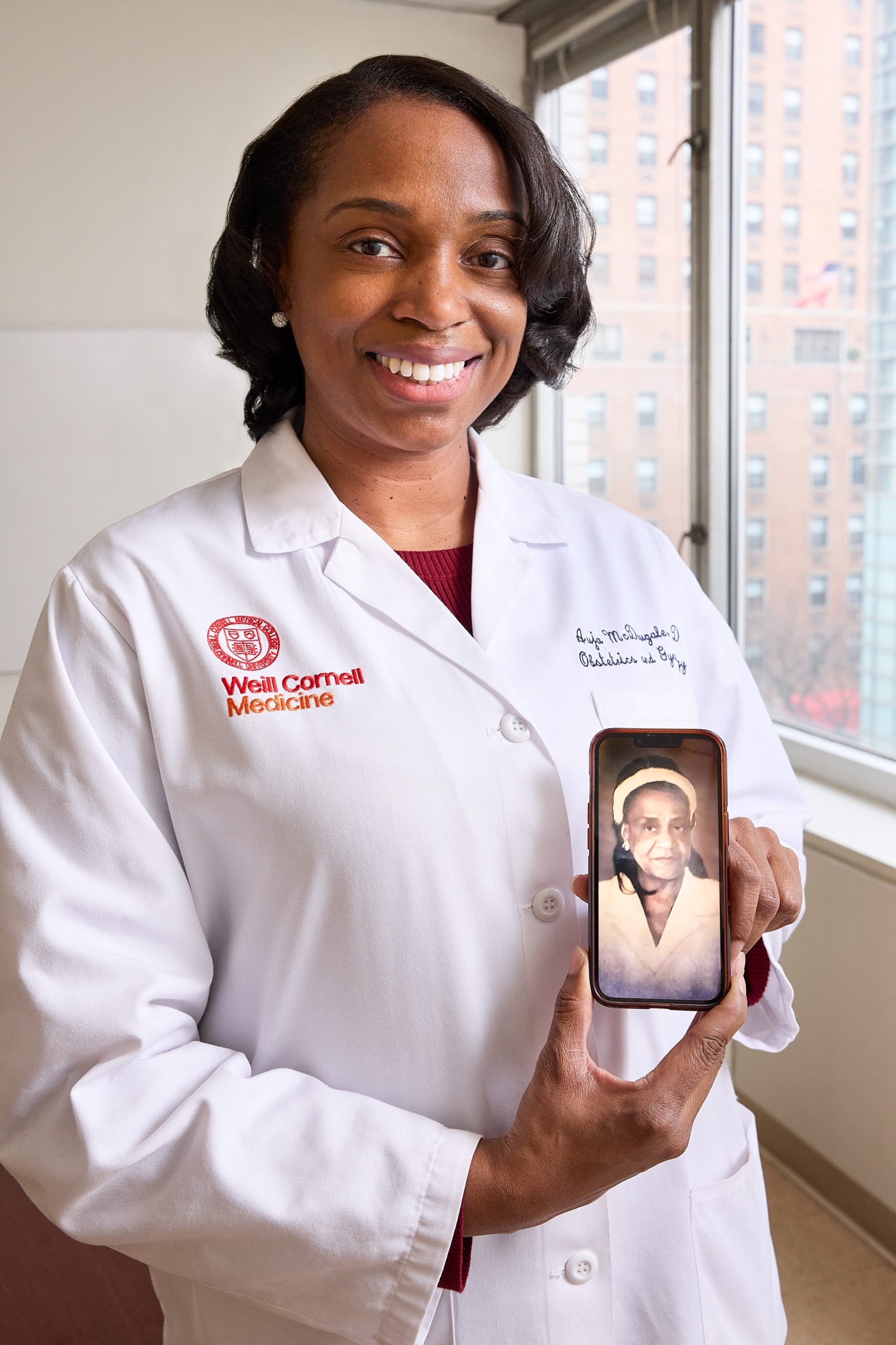
[ad_1]
Dr. Auja McDougale has been inspired by civil rights and her family’s rich history for most of her life, even inspiring her own career in the medical field.
From a grandmother who marched in Selma alongside Dr. Martin Luther King, Jr. to her mother who lost her life too soon due to a failure of the healthcare system, McDougale is all too familiar with discrimination.
As McDougale, an OB-GYN at New York-Presbyterian/Weill Cornell Medical Center, told ESSENCE, “I became a doctor because my mom lost her life at the age of 38, at a local (now defunct) hospital that was under-resourced. As a teenager, having that experience, losing my best friend, my mother, a young, gifted Black army veteran who had so much ahead of her — I feel it’s now my job to fight against the systemic issues of the past and move institutions such as New York-Presbyterian forward to a new legacy of community empowerment and collaboration.”

Civil rights and healthcare have long been inextricably linked. In 1966 Dr. King delivered a speech in Chicago to doctors and other health care workers, and at one point stated “Of all the inequalities that exist, the injustice in health care is the most shocking and inhuman.”
Almost fifty-eight years later, these words unfortunately still ring true today in America. And McDougale’s experience with her mother “impacted how I look at the doctor-patient relationship, how I look at community health in general, how I want to expand healthcare access.”
“It’s time for us to reset the clock. We know there’s a gap, not only in health status, but a gap in trust,” continued McDougale. “In thinking about important decision-making, I think about my family resisting cultural norms.”
“If she [my grandmother] had not made those choices, my life could have been very different. I often hear my grandmother’s voice. How persistent and determined she was to follow her own path. I’m just so proud that she persevered. She was a brown-skinned woman, a woman of color who said, ‘No, I’m going to not do this conventional thing. I’m going to go over here and do this instead,’” McDougale proudly stated.
“Because of all this, I’m in the very fortunate position to have a seat at the table and to speak freely and openly about what’s needed for communities who are very much deserving, and who have been waiting quite a bit of time for resources,” McDougale says, with a keen understanding that she might be the only avenue through which some underrepresented voices might be heard.
As such, the activist physician has dedicated much of her life toward addressing critical issues impacting the Black community, such as increasing access to healthcare, reducing maternal mortality rates, and combatting residual structural hurdles from discriminatory practices like red lining. “When we talk about things like health equity, when we talk about diversity and inclusion, about social determinants, community health, and global health, it’s a collaborative effort,” McDougale added. “That’s what most resonated with me, because my grandmother was very much out in the community. She preached, she sang, she taught, she did everything.
“I have such a sense of pride for being a physician and a mother raising a Black son. I think every day about the legacies we’re creating for the generations to come. All I can do is use whatever talents I have to make sure that those voices are heard, and that my own voice is heard too,” said McDougale.
[ad_2]
Source link








